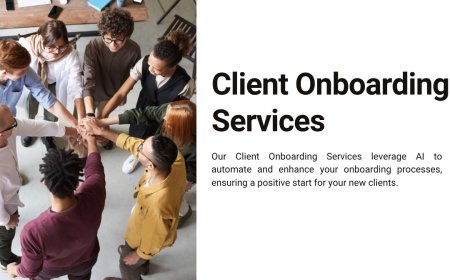Skills to Look for When Hiring Android Application Developers
This blog explores the key skills you should prioritize when hiring Android application developers to ensure your projects succeed.

In todays fast-evolving digital world, Android applications have become an essential part of daily life, powering everything from communication and entertainment to healthcare and finance. For businesses aiming to establish or enhance their presence on mobile platforms, hiring skilled Android developers is crucial. But what exactly makes an Android developer stand out in 2025? This blog explores the key skills you should prioritize when hiring Android application developers to ensure your projects succeed.
1.Proficiency in Kotlin and Java
At the core of Android app development are the programming languagesKotlinandJava. While Java has been the traditional language for Android, Kotlin has rapidly gained popularity due to its concise syntax, modern features, and full interoperability with Java. A proficient Android developer should be fluent in both languages, with a strong preference for Kotlin, which is now the official language recommended by Google for Android development.
Developers must be comfortable writing clean, efficient, and maintainable code in these languages to build robust applications that perform well across diverse Android devices.
2.Strong Understanding of Android SDK and Development Tools
An Android developer must have hands-on experience with theAndroid Software Development Kit (SDK), which provides the APIs and tools necessary to build, test, and debug Android apps. Familiarity withAndroid Studio, the official integrated development environment (IDE), is essential for efficient coding, debugging, and performance optimization.
Additionally, knowledge ofGradlefor build automation and dependency management ensures smooth project builds and integration.
3.Expertise in UI/UX Design and Material Design Principles
User experience (UX) and user interface (UI) design are critical for app success. Developers should understandMaterial Design guidelines, Googles design language for Android apps, to create visually appealing, intuitive, and responsive interfaces.
Skills in using UI components likeRecyclerView,ConstraintLayout, and implementing animations contribute to crafting engaging user experiences. Developers should also be adept at designing layouts that adapt seamlessly to various screen sizes and orientations, including tablets and foldable devices.
4.Knowledge of Android Architecture Components
Modern Android development emphasizes maintainable and scalable app architecture. Developers should be familiar withMVVM (Model-View-ViewModel)architecture and Android Jetpack components likeLiveData,ViewModel,Roomfor database management, andNavigation Componentfor seamless in-app navigation.
These components help in building apps that are easier to test, debug, and extend, which is crucial for long-term project sustainability.
5.Experience with API Integration and Backend Communication
Most Android apps interact with backend services through APIs. A skilled developer must be proficient in integratingRESTful APIs, handling JSON/XML data, and managing network requests efficiently using libraries such asRetrofitorVolley.
Understanding authentication mechanisms (OAuth, JWT), error handling, and asynchronous programming (usingCoroutinesorRxJava) is essential to ensure smooth and secure data exchange between the app and servers.
6.Database Management Skills
Managing data efficiently is vital for app performance and user satisfaction. Developers should have experience working with local databases likeSQLiteandRoom, Androids official persistence library. This knowledge enables them to implement offline capabilities, cache data, and optimize data storage.
Additionally, familiarity with cloud databases and backend-as-a-service platforms likeFirebaseenhances the apps real-time data synchronization and scalability.
7.Testing and Debugging Expertise
Quality assurance is a cornerstone of successful app development. Developers should be skilled in writingunit tests,instrumentation tests, and performingUI testingusing frameworks likeJUnit,Espresso, andMockito. Automated testing ensures that the app functions correctly across different devices and Android versions.
Effective debugging skills, including the use of Android Studios debugging tools and performance profilers, help identify and resolve issues quickly.
8.Security Best Practices
Given the sensitive nature of data handled by many apps, especially in sectors like finance and healthcare, developers must prioritize security. They should be knowledgeable aboutdata encryption,secure API communication (HTTPS),authentication protocols, andsecure storageof user credentials and sensitive information.
Implementing security best practices reduces vulnerabilities and protects user data from breaches.
9.Familiarity with Emerging Technologies
The Android ecosystem is rapidly evolving with new technologies shaping user expectations. Developers who keep pace with innovations such asArtificial Intelligence (AI),Machine Learning (ML)integration,Augmented Reality (AR),Virtual Reality (VR), andInternet of Things (IoT)are highly valuable.
Mastering these technologies allows developers to build cutting-edge apps that offer enhanced functionality and immersive experiences.
10.Cross-Platform Development Knowledge
While native Android development remains vital, many businesses seek developers who can also work withcross-platform frameworkslikeFlutterandReact Native. This skill enables the creation of apps that run on both Android and iOS, reducing development time and costs.
Developers with cross-platform expertise bring flexibility and efficiency to projects targeting multiple platforms.
11.Soft Skills: Communication, Problem-Solving, and Adaptability
Technical prowess alone is not enough. Android developers should possess strongcommunication skillsto collaborate effectively with designers, testers, product managers, and clients. They must be adept at understanding requirements, providing feedback, and explaining technical concepts clearly.
Problem-solving abilitiesare critical for troubleshooting issues and optimizing app performance. Additionally, adaptability and a willingness to learn new tools, languages, and frameworks are essential in the fast-changing tech landscape.
12.Attention to Detail and Code Quality
Writing clean, maintainable, and well-documented code is essential. Developers should follow coding standards, use version control systems likeGit, and participate in code reviews. Attention to detail ensures fewer bugs, easier maintenance, and better collaboration within development teams.
Conclusion
Hiring the right Android developer can significantly impact the success of your mobile app projects. Look for candidates who combine strong technical skillssuch as Kotlin and Java proficiency, UI/UX design, API integration, and testingwith a proactive mindset, adaptability, and effective communication.
In 2025, the best Android developers are those who stay updated with the latest technologies, embrace best practices, and focus on delivering seamless, secure, and engaging user experiences.
If you are looking for expert Android application developers who embody these skills and can drive your projects to success, consider partnering withToXSL Technologies. With a proven track record in delivering innovative mobile solutions, ToXSL Technologies offers skilled developers equipped to meet your business needs and help you stay ahead in the competitive digital landscape.
By focusing on these essential skills, you can build a strong development team ready to tackle the challenges of modern Android app development and create applications that delight users and drive business growth.










































